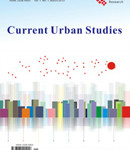Blaise Dobson & Jean-Pierre Roux – Opportunities in Urban Informality, Development And Climate Resilience In African Cities
No comments yetcdkn.org. Blaise Dobson and Jean-Pierre Roux (SouthSouthNorth) argue that African urbanisation and burgeoning informal settlements present an opportunity to build truly adaptive cities.
African cities are characterised by high levels of slums and informal settlements, largely informal economies, high levels of unemployment, majority youthful populations, and low levels of industrialisation. They have the highest growth rates in the world despite the fact that sub-Saharan Africa is still only approximately 40% urbanised. The urban poor, who largely reside in informal settlements and slums, are vulnerable to a range of global change effects, including global economic and climate change impacts. These can combine to have devastating effects on the poor, who generally survive on less than US$ 2 per day, but also on the ‘floating middle class’, who are defined as living on between US$ 2 – 4 per day, and constitute 60% of the African middle class.
The African Centre for Cities (ACC) and Climate and Development Knowledge Network (CDKN) hosted a three-day workshop in Cape Town in July aimed at developing a framework for understanding the intersection between climate resilience and urban informality, and promoting integrated urban development and management within African cities. ‘Champion groups’ from Accra (Ghana), Kampala (Uganda) and Addis Ababa (Ethiopia), which included local authorities, academia and civil society attended.
http://cdkn.org/opportunities-african-cities/
You May Also Like
Comments
Leave a Reply






